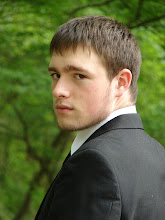Concerning Violence
Literature contains so many examples of person vs. person violence, from the climactic scenes of Harry battling Voldemort to the horribly tragic suicide endings of some of Shakespeare’s plays. Leaning toward the tragic end of this spectrum, the ending of Huxley’s Brave New World features a late-coming protagonist, John, hanging himself in a lighthouse. The initial effect is repulsion, pity, and a fair bit of irritation (at least for me—he is a good character). However, taking a step back and peering into the situation, John felt as though he had let his entire culture slip away. After all, he was raised in the remainder of the Native American tradition, mixed with Christian influences. His morals were unshakable, for the most part, and he conditioned himself to not allow them to be shaken by beating himself with a whip. However, the culture of the rest of the world corrupted him in his view as he participated in a huge orgy in the previous scene. Because his actions violated everything he’d held on to, he must have felt as though he lost the only thing keeping him anchored to the world. And without it, he must have felt his only choice was to leave the world. What did Huxley hope to accomplish by this? Perhaps he meant to say that the old cultural standards cannot survive exposure to new ones. Maybe he was a communist, as communism was rising to challenge democracy during his life. Then again perhaps Huxley was warning that a compromise on our moral fortitude could indeed spell death. Perhaps all of these, some combination of them, or none of them are correct.
On the other hand, some violence in literature springs from a “random” accident, or from the environment, or from a disease. A disease is key in the final scenes of Forest Gump, perhaps one of the most inspirational and sorrowful movies of recent years. Not to spoil the ending, but Jenny dies of a mysterious illness, probably AIDS. Leaving Forest heartbroken with their child, Jenny’s death brings tears to the eyes of the viewer as well. At a deeper level though, could Jenny be paying for the sins of her past? She is finally repentant, and moreover happy. And she dies. She has finally married Forest and told him of their son, and his intellect. And she dies. She will finally be able to live out a normal life, like she probably wanted deep down inside all those years. And she dies. Then again, perhaps this event is more aimed at Forest. “Life’s like a box of chocolates…” His life was filled with fortune and misfortune, just like everyone else’s. Perhaps her death was to reinforce this fact; we never know what is going to occur from one day to the next. All we can do is deal with life as it comes and make the best of what life throws, be that raising a son alone or showing the president the wound on your “buttocks.”
Subscribe to:
Post Comments (Atom)

No comments:
Post a Comment